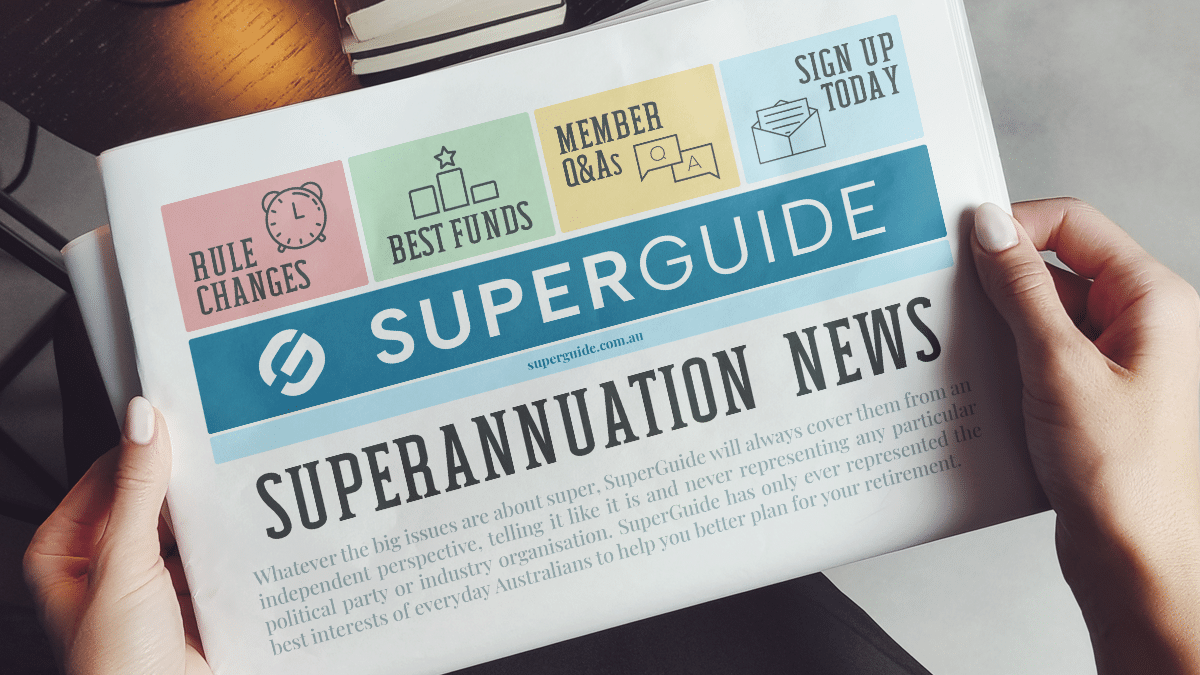Guide to super contributions, ‘Failed’ funds, SMSFs and property development, Super for employers, Centrelink payment finder, Age Pension rates.
Highlights of the September 2022 edition of the SuperGuide newsletter include:
- GROW YOUR SUPER THE SMART WAY: Getting the right mix of super contributions can deliver more bang for your buck.
- MYSUPER PERFORMANCE TEST: Five funds failed the test, but the performance of MySuper funds is improving overall.
- PROPERTY DEVELOPMENT IN AN SMSF: It can be done, but tread cautiously because there are potential landmines.
- EMPLOYER’S GUIDE TO SUPER (PART 2): If you have employees or you’re self-employed, here’s what you need to know.
- NAVIGATING THE CENTRELINK MAZE: Unsure whether you’re eligible for the Age Pension and other payments? This tool should help.
- AGE PENSIONERS RECEIVE A RAISE: Check out the new Age Pension rates and calculate your entitlements.
HOW SUPER WORKS
Pensioners allowed to work more to boost labour market, Separating de facto couples in WA can now split super, Vanguard Super on track for 2022 launch, Biggest SMSF in Australia… Read more
Pensioners allowed to work more to boost labour market, Separating de facto couples in WA can now split super, Vanguard Super on track for 2022 launch, Biggest SMSF in Australia… Read more
Growing your retirement savings needs the right mix of super contributions. Some case studies may help you start thinking about what’s right for you. Read more
Growing your retirement savings needs the right mix of super contributions. Some case studies may help you start thinking about what’s right for you. Read more
Super often ends up being your biggest asset outside the family home, so it pays to understand how it works and then to keep tabs on it. Read more
Super often ends up being your biggest asset outside the family home, so it pays to understand how it works and then to keep tabs on it. Read more
It’s not widely known, but it’s possible to put money from a personal injury compensation payment into super without many of the usual caps and limits. Read more
It’s not widely known, but it’s possible to put money from a personal injury compensation payment into super without many of the usual caps and limits. Read more
SUPER FUNDS
Your annual member statement contains lots of valuable information about your super account, so it’s important to check your fund has been working hard for you. Read more
Your annual member statement contains lots of valuable information about your super account, so it’s important to check your fund has been working hard for you. Read more
Worries? What worries? Super funds ended the year on a positive note in December, capping off the third consecutive year of strong returns. Read more.
Worries? What worries? Super funds ended the year on a positive note in December, capping off the third consecutive year of strong returns. Read more.
Unlisted assets are an important investment for some larger super funds as their more stable returns provide a useful balance for the volatility of listed assets like shares. Read more
Unlisted assets are an important investment for some larger super funds as their more stable returns provide a useful balance for the volatility of listed assets like shares. Read more
SMSFs
Withdrawing a big pot of money from your super can be tempting, but strict rules apply. And then there’s tax. Read more
Withdrawing a big pot of money from your super can be tempting, but strict rules apply. And then there’s tax. Read more
If your SMSF comes to the attention of the ATO for the wrong reasons, don’t panic; swift remedial action is generally the best policy. Read more
If your SMSF comes to the attention of the ATO for the wrong reasons, don’t panic; swift remedial action is generally the best policy. Read more
Self-managed super funds are generally a family affair, but “mates rates” for fund transactions or business dealings are strictly off limits. Read more
Self-managed super funds are generally a family affair, but “mates rates” for fund transactions or business dealings are strictly off limits. Read more
EMPLOYERS GUIDE TO SUPER (PART 2)
Most employees now have the right to choose their own super fund, but employers still aren’t off the hook when it comes to offering choice of super fund. Read more
Most employees now have the right to choose their own super fund, but employers still aren’t off the hook when it comes to offering choice of super fund. Read more
Keeping detailed records on SG contributions for your employees is essential if you want to avoid problems with the ATO and claim the available tax deductions. Read more
Keeping detailed records on SG contributions for your employees is essential if you want to avoid problems with the ATO and claim the available tax deductions. Read more
When you are paying SG contributions for your employees, there are various payment options and technologies you can select to make the task a little easier. Read more
When you are paying SG contributions for your employees, there are various payment options and technologies you can select to make the task a little easier. Read more
When selecting a default super fund for your employees it’s essential it offers a MySuper product. Otherwise, you could find yourself in trouble with the ATO. Read more
When selecting a default super fund for your employees it’s essential it offers a MySuper product. Otherwise, you could find yourself in trouble with the ATO. Read more
Take this 10-question quiz to test your knowledge on the superannuation responsibilities for employers. Read more
Take this 10-question quiz to test your knowledge on the superannuation responsibilities for employers. Read more
RETIREMENT PLANNING
If you’ve been digging around online to see if you’re eligible for the Age Pension and other payments without much luck, there’s a tool that can help. Read more
If you’ve been digging around online to see if you’re eligible for the Age Pension and other payments without much luck, there’s a tool that can help. Read more
If retirement is on the cards this financial year it pays to consider these super strategies before you flick the switch to pension phase. Read more
If retirement is on the cards this financial year it pays to consider these super strategies before you flick the switch to pension phase. Read more
Many of us dream of early retirement, but if you need to access your super to live the dream you need to tick a few boxes first, beginning with your age. Read more
Many of us dream of early retirement, but if you need to access your super to live the dream you need to tick a few boxes first, beginning with your age. Read more
Once you turn 65 the last barriers to dipping into you super come down, even if you’re not ready to retire. Read more
Once you turn 65 the last barriers to dipping into you super come down, even if you’re not ready to retire. Read more
IN RETIREMENT
Age Pension rates are rising again. Check the latest rates for singles, couples and transitional pensions and learn what you may be entitled to. Read more.
Age Pension rates are rising again. Check the latest rates for singles, couples and transitional pensions and learn what you may be entitled to. Read more.
Our Age Pension calculator gives you an estimate of your potential Age Pension entitlements based on your situation, assets and income. Read more.
Our Age Pension calculator gives you an estimate of your potential Age Pension entitlements based on your situation, assets and income. Read more.
A common question for those nearing or in retirement is “How much can a pensioner earn before it affects the pension?”. Read more
A common question for those nearing or in retirement is “How much can a pensioner earn before it affects the pension?”. Read more
This article details the rules and limits of the Age Pension assets test (how much your savings and other assets are worth), which is one half of the means test … Read more.
This article details the rules and limits of the Age Pension assets test (how much your savings and other assets are worth), which is one half of the means test … Read more.
In the name of fairness and sustainability, the way you pay for residential aged care, and the amount, has changed. Read more.
In the name of fairness and sustainability, the way you pay for residential aged care, and the amount, has changed. Read more.





